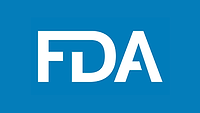FDA Guidance for Food Importers on Inspection Refusals

Credit: U.S. Food and Drug Administration (FDA)
The U.S. Food and Drug Administration has released a guidance for industry that describes the actions, behaviors, and statements made by a foreign food establishment or foreign government that the agency considers to be a refusal of an FDA inspection.
The Food Safety Modernization Act (FSMA) gives FDA the authority to refuse food imports entry into the U.S. if the foreign food establishment or foreign government refuses to permit FDA to inspect the foreign establishment that produced the food. The guidance provides examples of situations that FDA may consider as constituting refusal.
Business personnel or foreign governments preventing or delaying FDA from scheduling an inspection through lack of communication, not agreeing to an inspection start date, requesting a later date without reasonable explanation, or other actions, would be considered by FDA a refusal of inspection. Business personnel or foreign governments preventing FDA inspectors from entering an establishment or halting operations when an inspection is meant to occur would also be considered a refusal of inspection. Additionally, the guidance states that foreign governments preventing FDA inspectors from fully conducting an inspection, by establishing unreasonable preconditions or interfering with completion of the inspection, as a refusal.
Finally, the guidance outlines actions that FDA will take in the event of an inspection refusal by foreign business operators or foreign governments.
Looking for a reprint of this article?
From high-res PDFs to custom plaques, order your copy today!






